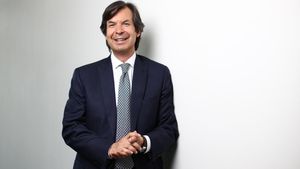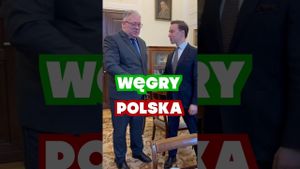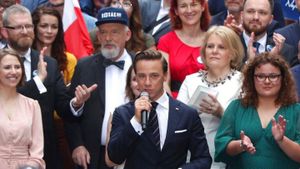Denny Hamlin, one of NASCAR's most prominent figures, has voiced strong reservations about the recently introduced Open Exemption Provisional (OEP), labeling the move as indicative of desperation within the sport. This new rule, which guarantees entry to select star drivers from outside NASCAR, has sparked intense debate about its long-term impact on the integrity of the NASCAR Cup Series.
Hamlin, who is not only a three-time Daytona 500 winner but also co-owner of the 23XI Racing team, expressed his concerns candidly about the OEP following NASCAR's announcement of various rule changes for the upcoming season. He noted how the OEP encourages world-class drivers to participate by securing them guaranteed spots, regardless of their qualifying times, as long as there are more than 40 total entries. "I just think it reeks of desperation," said Hamlin, underscoring his lack of support for the measure.
Prior to the start of the 2025 season, NASCAR officials announced the OEP, which applies to pre-approved drivers competing for unchartered Open Teams. Under these provisions, if more than 40 entries are received, these drivers can be locked in, which Hamlin believes undermines the tradition and competitive nature of the series. He argued, "To me it is short-term gain, long-term loss." According to him, the move devalues the necessity for drivers to establish their credentials through competition.
The Daytona 500, especially, has historically been regarded as the premier event within stock car racing, attracting participants who have earned their way through rigorous qualifications. With over 40 entries expected for the event, the inclusion of the OEP could have significant ramifications. This year’s race will feature talented drivers, including the likes of Helio Castroneves, who has been approved for the OEP and could potentially compete if he fails to qualify on speed or through the Duel races.
Hamlin's comments resonate with many traditionalists who fear the influence of established stars from other racing disciplines watering down the competitive spirit of NASCAR. He continued to reflect on the broader consequences, stating, "It just feels like you are really trying to get any kind of headline you can to be relevant and I don’t love it." This sentiment raises questions about the strategic direction NASCAR is taking to attract international talent, including names like Jenson Button and Kimi Raikkonen, and whether these efforts may distract from nurturing homegrown talent.
While some within the NASCAR community argue the OEP is necessary to draw attention to the series and expand its global appeal, Hamlin worries this could undermine the rich history and challenging essence of stock car racing. Supporters of the new rule claim it might help NASCAR gain visibility and attract new fans who recognize these world-class competitors. Yet critics contend it dilutes the competition, potentially diminishing the prestige of the Daytona 500 and similar races.
Interestingly, the OEP stipulates limitations for those who are granted entry under its privileges. Drivers such as Castroneves would be unable to earn points, prize money, or qualify for the NASCAR playoffs, mitigating some of the potential advantages the OEP might convey. This clause adds another layer to the already complex debate surrounding the rule’s implementation.
The Daytona 500's qualifying events are set to begin with time trials on February 12 and will be followed by the Duel races on February 13, leading up to the main event on February 16. The anticipation surrounding these races is palpable, and with over three dozen chartered entries, the potential influx of unchartered competitors via OEP could make for dramatic storylines throughout the event.
Hamlin’s critique reflects not only his personal views but also the fears of traditionalists within the sport who worry about what these changes might herald for NASCAR's future. The introduction of the OEP may serve the short-term goal of increasing star power within NASCAR events, but it raises fundamental questions about the values and competitive integrity of the sport moving forward. The conversations ignited by Hamlin’s comments suggest this is just the beginning of a long debate about the very nature of competition within NASCAR.
Hamlin's skepticism highlights the tension between innovation and tradition in professional sports. It seems clear he, along with many fans and competitors, will be watching closely as the season progresses to see how these changes manifest on the track and how they will affect the legacy of events like the Daytona 500.



